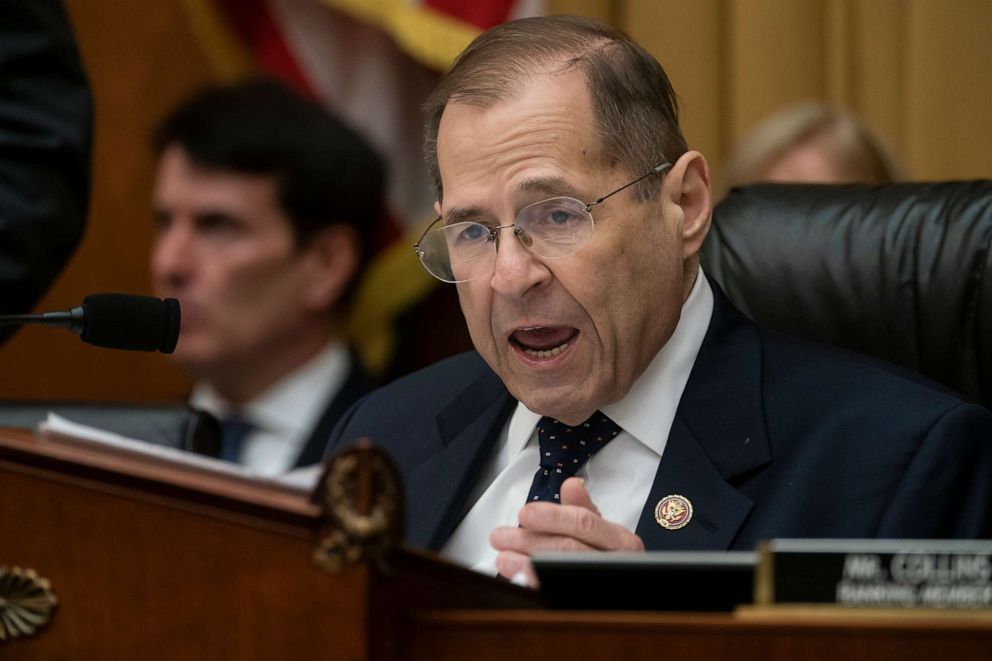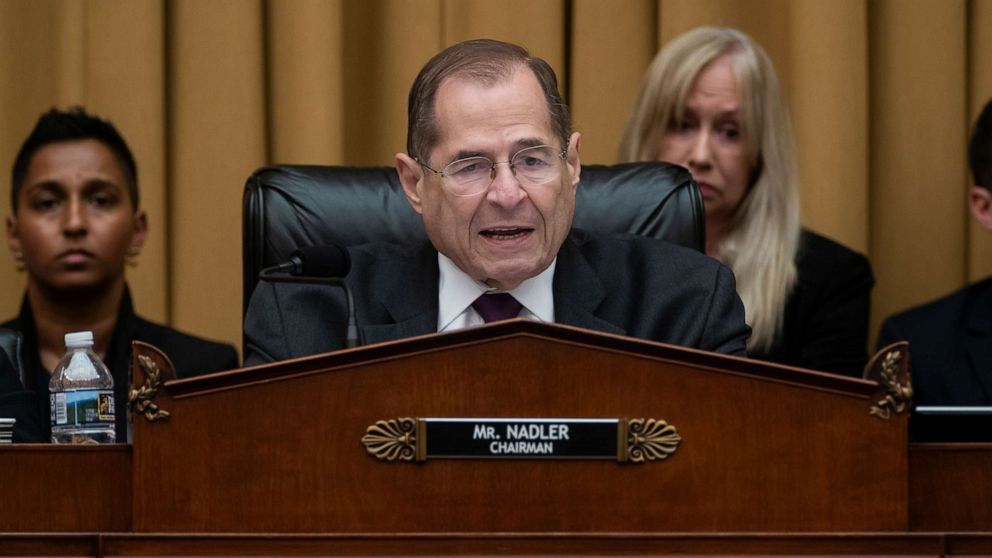House Democrats go to court for Mueller grand jury evidence, a step toward impeachment
House Judiciary Chairman Jerrold Nadler filed a lawsuit Friday seeking grand jury material underlying former special counsel Robert Mueller's report -- a step to determine whether to recommend articles of impeachment against President Trump.
"The Committee’s ongoing investigation is preliminar[y] to a judicial proceeding because the Committee is considering whether to recommend articles of impeachment," the court filing read. "The Committee’s request readily satisfies each of the requirements needed to demonstrate particularized need."
Lawyers for the committee argue this is their most significant step so far.

"We have just given notice that we are actively considering articles of impeachment -- in a formal document by the House of Representatives," an attorney for the House Judiciary Committee said. "That is as serious a step we can take at the time."
During his press conference earlier this afternoon, Nadler said "we may decide to recommend articles of impeachment at some point, we many not, that remains to be seen."
The Department of Justice and House Judiciary Committee reached an agreement last month that allowed committee members access to some of the documents that underpinned Mueller's investigation into obstruction of justice. Members and some committee staffers were allowed to see a less-redacted version of the full Mueller report, with the exception of grand jury material.
However, Democrats have still rejected this, saying they believe that every member of Congress should have access to the report and underlying material.
Attorneys for the House Judiciary Committee argued that the members who went to the Department of Justice to review that material and peer under those redactions "found compelling information" that they believe should be made public -- and said the grand jury information will help that.
"We don't know what we don't know," one committee lawyer said when asked about what the committee thinks they will find in these materials.
The committee in April issued a subpoena for the full, unredacted Mueller report and for its “underlying evidence,” despite a federal procedural rule that requires information from a grand jury to remain secret.

The battle for Congress to gain access to this material has been ongoing since Attorney General William Barr released the redacted Mueller report to the public April 18.
The very next day, Nadler subpoenaed the unredacted document along with underlying grand jury evidence and testimony, requesting the subpoena be met by May 1. Grand jury, or so-called 6(e) material, refers to Rule 6(e) of the Federal Rules of Criminal Procedure, which requires information from such proceedings remain secret.
In May, the Trump administration invoked executive privilege for the first time over Mueller’s findings, a move that marked an escalation in tensions with Democrats.

It triggered a battle in the courts, as Democrats work to review the full extent of Mueller’s conclusions.




